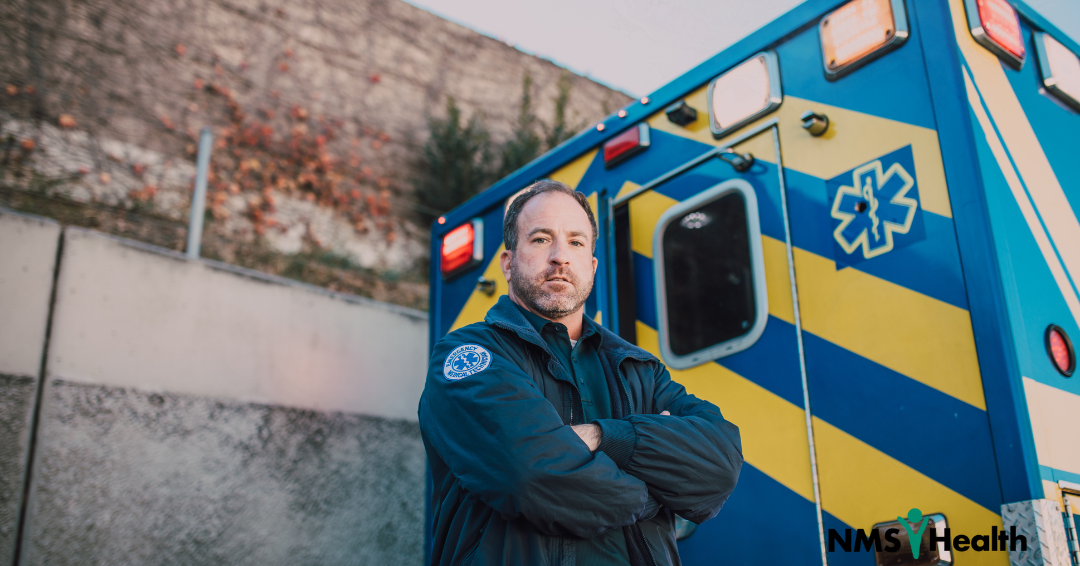A new bill in Maryland could provide protections for fire and rescue workers who use medical cannabis to manage their health conditions. The legislation, S.B. 1023, passed the Maryland Senate with a 36-8 vote and is now under consideration by the House Economic Matters Committee. If enacted, the bill would prevent employers from penalizing these public safety workers for using medical cannabis outside of work hours, ensuring they can manage their health without fear of job repercussions.
Key Features of the Bill
The S.B. 1023 bill protects firefighters and rescue workers who are registered medical cannabis patients by preventing employers from taking discriminatory actions against them:
- Protection for Off-Duty Use: Fire and rescue workers who use medical cannabis on their own time and under the supervision of a doctor would not face penalties or discrimination by their employers, even if they test positive for cannabis. Employers would be prohibited from disciplining, discharging, or discriminating against employees for testing positive for THC metabolites based solely on their participation in the state-legal medical cannabis program, ensuring that workers are not penalized regarding their compensation, terms, conditions, or employment privileges.
- No Impairment on Duty: While the bill protects workers from penalties for off-duty cannabis use, it still allows employers to prohibit employees from performing safety-sensitive duties while impaired by cannabis and allows employers to set zero-tolerance policies for on-duty impairment.
This legislation strikes a balance between respecting workers’ rights and ensuring the safety of both employees and the public, particularly in high-risk fields like firefighting and emergency services.
Supporting Workers’ Health Needs
The bill addresses the physical and mental health challenges faced by many firefighters and rescue workers. Firefighters and rescue workers regularly face high levels of stress, physical strain, and trauma in their line of duty. This exposure increases their risk of developing conditions such as chronic pain and post-traumatic stress disorder (PTSD). As Sen. Carl Jackson (D-Baltimore) explained, “Firefighters endure extreme physical and psychological stress due to the nature of their work. Many suffer from chronic pain, post-traumatic stress disorder, and other debilitating conditions… Medical cannabis has been recognized as a safer, viable alternative that will allow firefighters to manage their symptoms while maintaining their ability to perform at the highest level.”
For many in the field, opioids and other prescription medications used to manage these conditions can have dangerous side effects, including dependency and cognitive impairment. Medical cannabis may offer a safer alternative that allows workers to manage their conditions while staying fit for duty.
Reducing Stigma and Supporting Workplace Safety
While the medical cannabis debate continues to evolve across the U.S., the S.B. 1023 bill recognizes the growing need for workplace accommodations and protections for fire and rescue workers who use cannabis legally as part of their medical treatment. Paul Armentano, NORML Deputy Director, voiced his support for the bill, stating, “The use of medical cannabis should never be grounds for discrimination of any kind.” His comments reflect the growing sentiment that employers should treat medical cannabis like other prescription medications in the workplace.
The bill also aims to combat the workplace stigma that many workers face when using cannabis legally for medical purposes. The stigma surrounding medical cannabis use can deter employees from seeking the treatment they need due to fear of repercussions. This concern is particularly prevalent in high-risk industries like firefighting and emergency services, where workers worry that disclosing their medical cannabis use may jeopardize their careers.
What Employers Need to Know
If S.B. 1023 becomes law, public safety employers in Maryland will need to adjust their workplace policies to reflect the new legal protections for medical cannabis users. Key considerations for employers include:
- Revising Drug Use Policies: Employers should revise their drug and alcohol policies to distinguish between off-duty cannabis use and on-duty impairment. Policies should clearly state that medical cannabis use outside of work hours will not lead to disciplinary action.
- Clarifying Impairment Standards: Employers can continue to enforce policies that prohibit employees from working while impaired by medical cannabis. Employers should set clear guidelines regarding impairment and safety-sensitive duties.
- Training and Communication: Supervisors and HR personnel should be trained on how to manage situations related to medical cannabis use in the workplace. Employers must also clearly communicate the new policies to employees to ensure compliance.
Looking Ahead at Protections for Fire and Rescue Workers
The passage of S.B. 1023 could represent a significant shift in how public safety employers address medical cannabis use. By balancing worker protection with safety standards, the bill ensures that firefighters and rescue workers can continue to serve their communities while managing their health needs.
As Sen. Carl Jackson highlighted, “It is imperative that we provide them with the access to the medical care they need, including physician-approved cannabis treatments, without fear of employment repercussions.”
Ready to elevate your workforce’s health? Partner with NMS Health for your occupational health screenings and vaccinations. With NMS Health, you are not just identifying and preventing future illness; you’re investing in a safer, healthier future for your team. Get started today!


